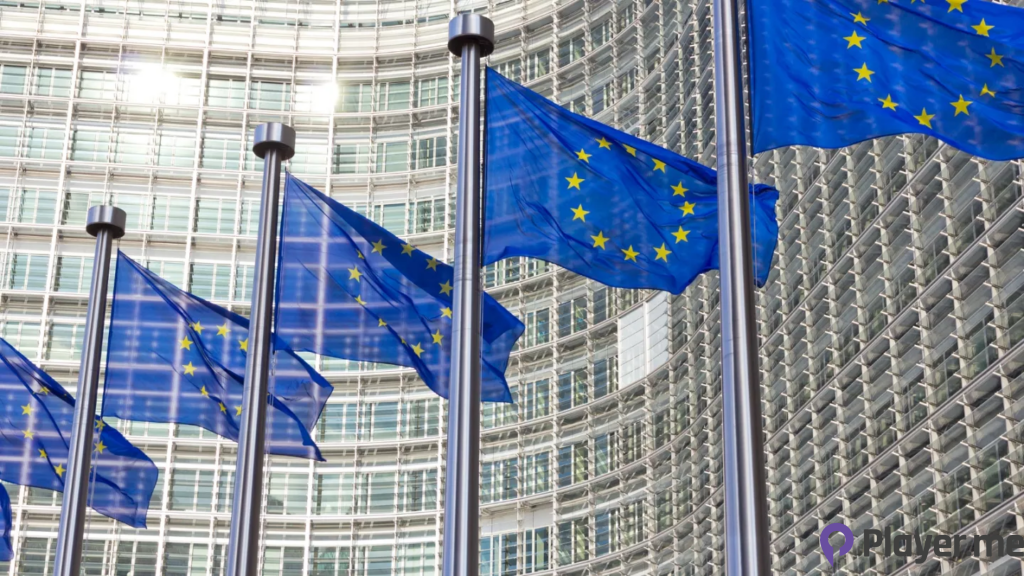Artificial Intelligence (AI) has become an integral part of our modern world, revolutionising industries, services, and everyday life. Its significance lies in its ability to process vast amounts of data, make predictions, and automate tasks, enhancing efficiency and innovation across various sectors. Recognising this urgency, Germany, France, and Italy have jointly undertaken initiatives to shape the future of AI regulation within Europe.
Key Points of the Agreement

France, Germany, and Italy aim to establish a framework that promotes innovation while safeguarding individual rights and societal well-being. Their agreement signifies a collective effort to address the challenges posed by AI’s rapid advancement. The AI regulation agreement has the following key points:
Read More: Stable Video Diffusion: Stability AI Announces Its First Ever Foundation Model for Generative Video
Binding Voluntary Commitments
The agreement forged by Germany, France, and Italy underscores the necessity of instituting binding voluntary commitments for AI providers operating within the European Union. This approach intends to encompass the major tech giants and smaller-scale enterprises, emphasising their responsibility in ethically employing AI and accountability. Mandating these commitments creates a level playing field where all AI entities adhere to agreed-upon standards, fostering a culture of responsible AI deployment and safeguarding user interests.
Related: Ant Group Wins Approval to Release AI Products to Chinese Public
Safety and Trustworthiness

Another pivotal facet the AI regulation agreement highlights is prioritising AI systems’ safety and trustworthiness. This entails setting robust standards and guidelines to ensure that AI applications operate reliably, securely, and without posing undue risks to users or society at large.
Preventing Discrimination
Emphasising the need to prevent discriminatory and harmful practices stemming from AI applications, the agreement underscores the significance of addressing biases inherent in AI algorithms. These biases can result in unfair treatment based on race, gender, or other individual characteristics. Mitigating such biases is crucial in upholding principles of equality and fairness in AI-driven decision-making processes.
Creating Rules for AI
The agreement suggests making clear rules to manage how AI is used. This includes setting up a group to watch how AI is used, ensuring it follows the rules. Representatives of Germany have stated that laws and state control should not regulate AI itself but rather its application.
What Are the Implications of the AI Regulation Agreement?
The agreement among Germany, France, and Italy is crucial to shaping European AI regulation. Here are some of the major implications:
Accelerating European-Level Negotiations
The agreement among Germany, France, and Italy can fast-track negotiations at the European level, paving the way for establishing a comprehensive regulatory framework for AI. These countries set a precedent for collaboration and shared goals by aligning on shared principles and objectives, fostering a more unified approach across the European Union. This unity can streamline discussions, expediting the creation of standardised AI regulations that benefit all member states.
Promotion of Responsible AI Development
A key implication of this agreement lies in its emphasis on promoting responsible AI development and deployment. The agreement encourages AI developers and companies to adopt practices aligning with societal values by setting standards and guidelines prioritising ethical considerations, safety, and transparency. This focus on responsibility helps mitigate potential risks associated with AI technologies, ensuring that innovations in this field are in harmony with the broader welfare of society.
Enhancing Trust and Adoption
An essential outcome of this agreement is the potential enhancement of trust in AI technologies and their broader adoption. As regulations are implemented to ensure AI’s ethical and accountable use, it instil confidence among users, businesses, and policymakers. This increased trust is pivotal in encouraging the widespread acceptance and utilisation of AI in various domains, fostering its integration into daily life, businesses, and public services. As trust grows, so does the potential for AI to positively impact diverse aspects of society.
Challenges and Considerations: Consistent AI Rules
Making sure that all EU countries follow the same AI regulation is challenging. Each country might have its own ideas, leading to different rules. It’s essential to agree on standard rules to treat everyone fairly and avoid confusion for AI companies working across Europe.
Balancing Rules and Innovation
Figuring out the right amount of rules for AI is tricky. Too many rules might stop new ideas, but too few could cause problems. State Secretary for Economic Affairs Franziska Brantner highlights why harnessing the opportunities and limiting the risks was crucial. “We have developed a proposal that can ensure a balance between both objectives in a technological and legal terrain that has not yet been defined”, Brantner said. Finding a balance is critical to letting new AI tech grow while ensuring it’s safe and fair for everyone.
Ethics and Responsible AI
AI can sometimes cause problems like unfairness or privacy issues. It is essential to create rules that include good behaviour for AI and watch how it’s used. By being open about how AI works and involving different people, we can ensure it’s used correctly.
Forging the Future Together
This collective effort highlights the necessity of working together to ensure responsible AI use while fostering innovation. However, the journey doesn’t end here. Ongoing dialogue and collaboration among everyone involved, including governments, businesses, experts, and communities, are essential. While challenges exist, there’s optimism about AI’s potential to impact society positively. With careful guidance and thoughtful regulation, AI can drive progress, innovation, and advancements while safeguarding against potential risks. Together, we can shape a future where AI benefits us all.
Author Profile
Latest entries
 GAMING2024.06.12Top 4 Female Tekken 8 Fighters to Obliterate Your Opponents in Style!
GAMING2024.06.12Top 4 Female Tekken 8 Fighters to Obliterate Your Opponents in Style! NEWS2024.03.18Elon Musk’s SpaceX Ventures into National Security to Empower Spy Satellite Network for U.S.
NEWS2024.03.18Elon Musk’s SpaceX Ventures into National Security to Empower Spy Satellite Network for U.S. GAMING2024.03.17PS Plus: 7 New Games for March and Beyond
GAMING2024.03.17PS Plus: 7 New Games for March and Beyond GAMING2024.03.17Last Epoch Necromancer Builds: All You Need To Know About It
GAMING2024.03.17Last Epoch Necromancer Builds: All You Need To Know About It





